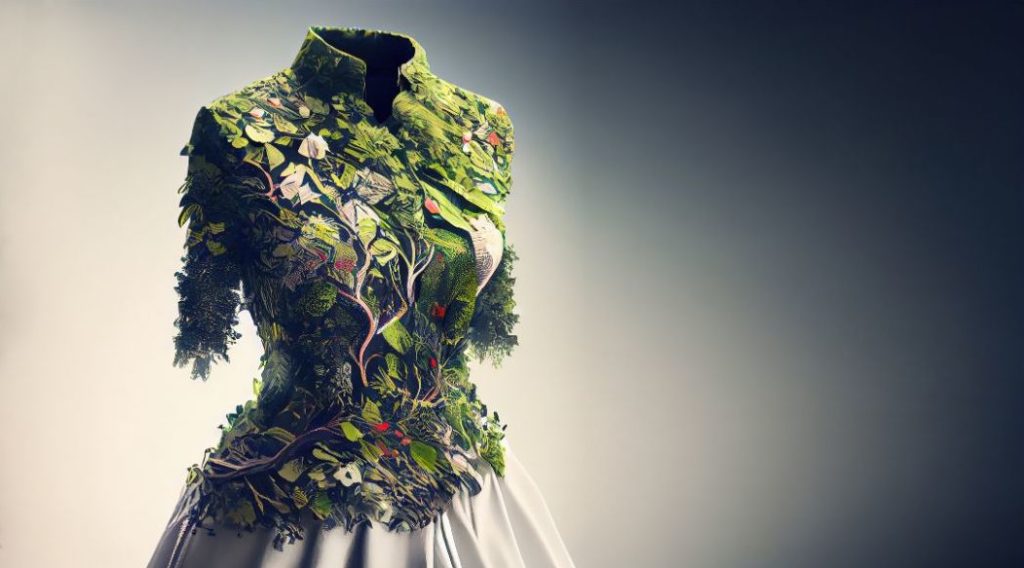If we cherish one thing at Bamboovement is the joys of gardening and tending to our plants during beautiful weather. Today, we invite you to join us on a green journey as we explore sustainable gardening—a practice deeply aligned with Bamboovement's core values. Delve into the principles and techniques of sustainable gardening, and discover how you can cultivate an eco-friendly oasis in harmony with nature.

Gardening is an opportunity to connect with nature, so using techniques that protect the environment and promote biodiversity is crucial. This style of gardening offers endless benefits for you and the environment. It also empowers individuals to grow food, contributing to food security and reducing reliance on mass-produced crops. By cultivating organic fruits, vegetables, and herbs, you control the quality and safety of your food.
Additionally, sustainable gardening provides valuable educational opportunities for people of all ages. It allows for hands-on learning about the natural world, ecology, and the interconnectedness of ecosystems. A sustainable garden can also serve as a therapeutic space, relieving stress and improving mental well-being.
Sustainable gardening is not only about nurturing plants; it fosters community connections and engagement. It provides a platform for collaboration, knowledge sharing, and resource exchange, allowing you to connect with like-minded individuals. If you're interested in getting involved, here are some ways to start your sustainable garden:
We strongly believe in protecting nature, and sustainable gardening allows us to extend this belief to our gardens. By embracing organic and chemical-free practices, such as composting, mulching, and natural pest control methods, we nurture healthy plants while preserving the delicate balance of our ecosystem. For those of you who don’t know, mulching is the process of covering the soil with a light layer of organic waste such as coffee grounds, dead leaves or straw to protect the soil from erosion and give extra nutrients to your plants.
As we strive to offer groundbreaking alternatives, sustainable gardening invites us to embrace innovation and creativity. Explore companion planting techniques and interweaving complementary plants to enhance biodiversity, improve pollination, and naturally deter pests. By fostering a diverse and vibrant garden, we create an inviting haven for wildlife, reduce the need for chemical interventions, and contribute to preserving our planet's natural balance.
An integral aspect of sustainable gardening is prioritising resource conservation. Implement water-wise techniques like rainwater harvesting, drip irrigation, and mulching to reduce water consumption, minimise runoff, and nurture thriving gardens without draining precious resources. Let's elevate our gardening practices to new heights of sustainability.
Reducing plastic waste is a cornerstone of our vision, and sustainable gardening aligns perfectly with this goal - minimising plastic usage by choosing eco-friendly gardening tools and materials. Embrace composting to reduce organic waste and create nutrient-rich soil amendments. Let's cultivate gardens that flourish with greenery and thrive as plastic-free sanctuaries for us and for the environment.

Sustainable gardening is a vital step in our journey towards a greener world. We can transform our gardens into vibrant biodiversity hubs by embracing these techniques. Join Bamboovement as we sow the seeds of change, one garden at a time. Share your experiences with us on social media and become part of our passionate community. Together, let's create a sustainable future.
At Bamboovement, we understand that clothing is more than just fabric; it is an inseparable part of our identity. As a company dedicated to inspiring people worldwide to live more sustainably, we endorse sustainable fashion's profound impact on our planet and self-expression. In this blog post, we delve into sustainable fashion's significance and environmental and social impact and provide practical ways to embrace this way of life.

Clothing is a powerful medium for self-expression, allowing us to communicate our personality, values, and cultural identity to the world. However, the fashion industry's environmental consequences are undeniable. Excessive resource consumption, waste generation, and non-degradable materials and chemicals harm our environment. Finding alternatives that allow us to express ourselves while living in harmony with nature is crucial.
Sustainable fashion offers this alternative. We emphasise the value of slow fashion, prioritising quality over quantity. Investing in pieces that last longer reduces consumption and minimises waste. Sustainable fashion empowers us to make conscious choices while expressing ourselves authentically. Moreover, it is a powerful ally in halting climate change. It promotes social change through ethical labour practices, ensuring fair wages, safe working conditions, and the protection of workers' rights. Which organically translates into a better quality of life for communities in underdeveloped countries.

If you're ready to be part of this movement, we present you with five ways to engage in sustainable fashion:
Upcycling: Transform old or unused garments into new, unique pieces by getting creative and repurposing them, extending their lifespan and reducing waste.
Thrifting and Secondhand Shopping: Give pre-loved garments a new life by shopping for secondhand clothing. Reduce textile waste and minimise the demand for new production. Explore platforms like 'By Nature', 'Vinted', 'The Labels' or visit flea markets in big cities for unique finds at wallet-friendly prices.
Clothing Rental: Rent clothes for special occasions or everyday wear, enjoying new styles without a long-term commitment. Share garments through rental platforms like 'Renttherunway' and 'CircleCloset', promoting reusability and lowering your carbon footprint.
Donating and Clothing Swaps: Donate unwanted clothing to local charities or organisations, allowing them to be reused or redistributed to those in need. Participate in clothing swaps with friends, colleagues, or community members, refreshing your wardrobe without purchasing new items.
Choosing Sustainable Materials: Opt for clothing made from eco-friendly fabrics like hemp, bamboo, recycled fibres or organic cotton. These materials require fewer resources, minimise chemical use, and have a lower environmental impact. However, you need to be aware that some of these are more sustainable than others. For instance, organic cotton requires a much higher amount of water for its manufacture than its counterparts. Supporting brands that prioritise sustainable materials drives responsible production practices.

Sustainable fashion allows us to dress in a way that reflects who we are while preserving the beauty of our planet. Let's embrace the transformative power of sustainable fashion, redefine the relationship between our clothing and identities, and create a world where fashion catalyses positive change and self-expression. Share your thoughts on these tips with us on our social media platforms. Together, we can make a difference!